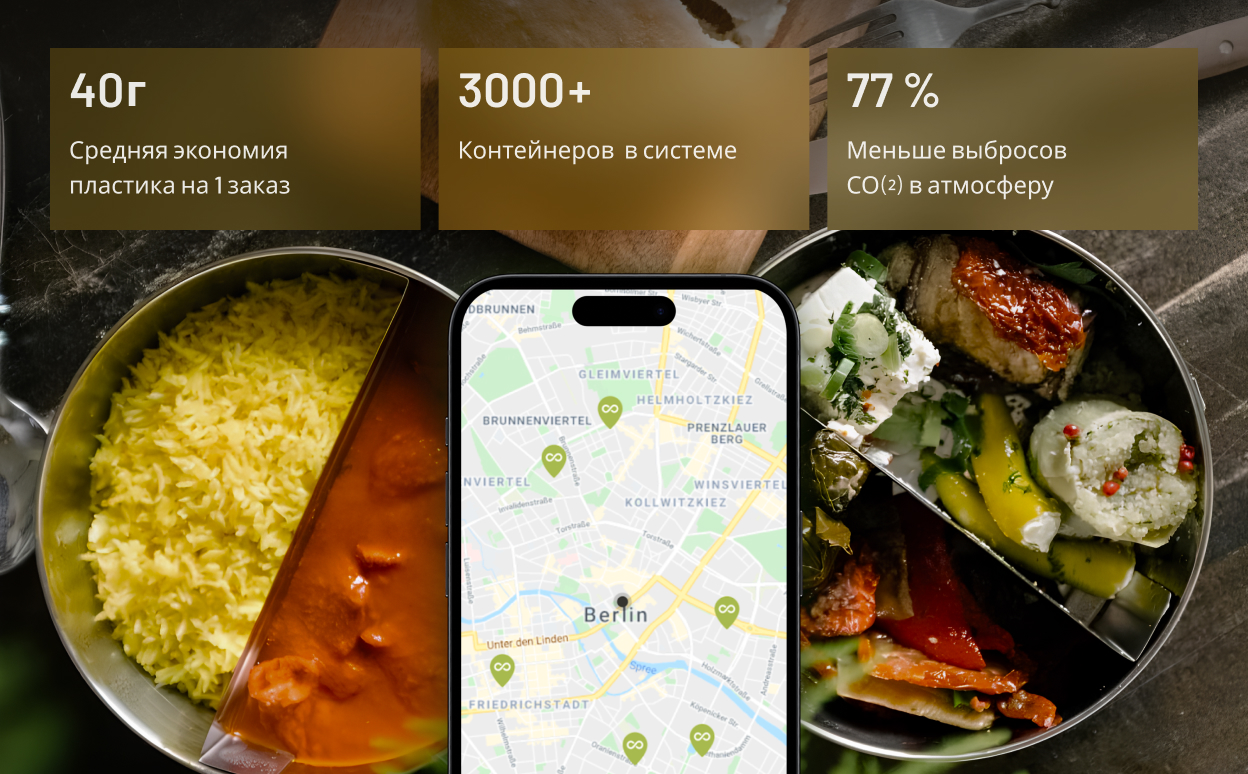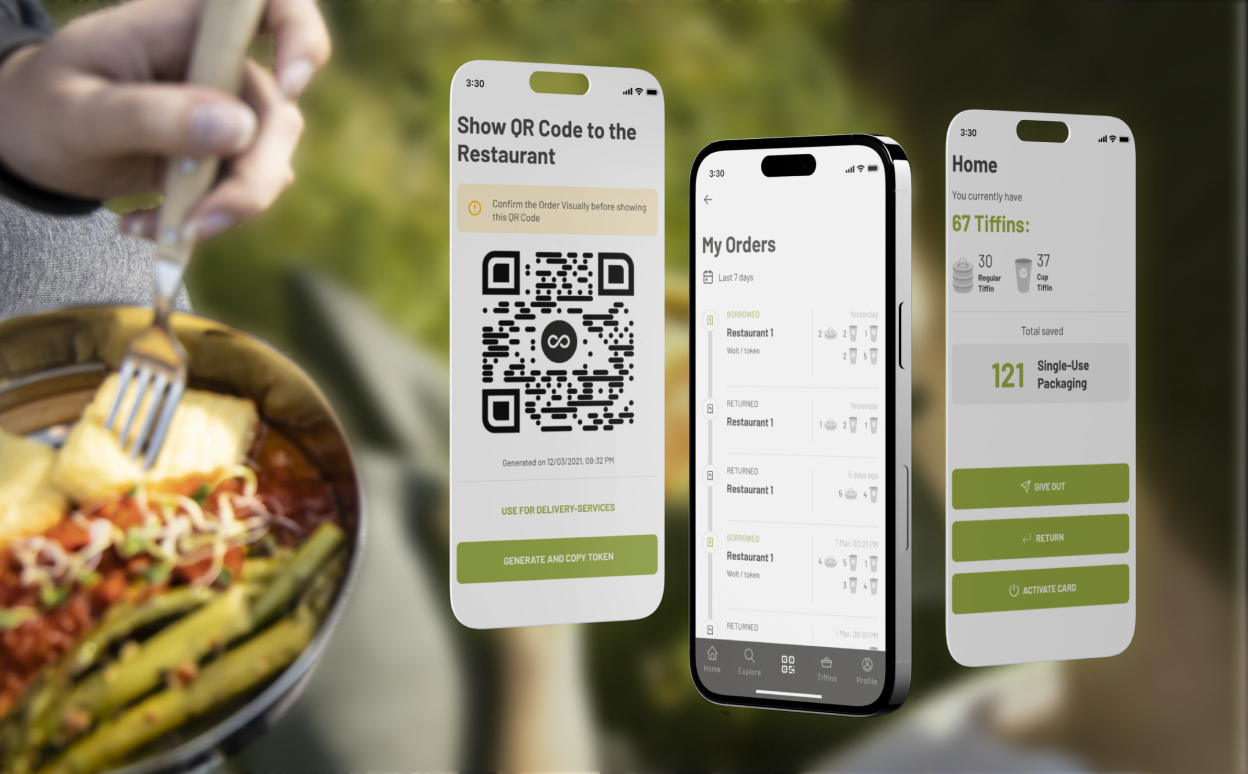
Tiffin Loop GmbH, Berlin, Germany
On July 3, 2021, a law banning the use of disposable plastic came into force in Germany. According to this law, restaurants are not allowed to provide take-out food in plastic containers. The law was aimed at reducing the amount of plastic waste.
At Tiffin Loop, a company specializing in producing reusable containers primarily for the HoReCa sector, the idea emerged to create an app that would allow users to rent and purchase metal reusable containers for use within the network of partner restaurants. It was intended to help Germans to buy take-out meals from restaurants without violating the law.
On a global scale, this project addressed the environmental aspect and aimed to reduce the use of plastic and its disposal into the environment.
In implementing this project, our task was to develop a B2C model of a service aggregator for renting tableware for restaurant chains.
The application aimed to reduce plastic waste in the environment in accordance with German legislation.
An application has been developed for renting metal food containers at partner restaurants of the project.
The uniqueness of the project lies in the comprehensive benefits for all participants:

Discovery Phase
Defining client requirements, writing specifications, design approval
Development Stage
Iterative development in sprints of 2 weeks each
Release 1 (in 3 months)
Key platform functionality
Release 2
Support Stage - ongoing
The restaurants involved in the project are interconnected within a single network ("loop").
A customer can obtain a container from one restaurant and return it to any other. To rent containers, users need to link their PayPal account. In case the containers are not returned on time, the system charges them a fee, and the containers become the property of the customers.
Capabilities of the "Client"
Capabilities of the "Restaurant"
Capabilities of the Admin Panel
The Tiffin Loop Company generates profit through the sale of containers.
The gamification of the application interface reflects the user's progress by the number of "saved" plastic containers, encouraging them to be environmentally conscious and continue using the service

German ERP system integration
One of the key stages of the project was the successful integration of the German ERP (Enterprise Resource Planning) financial accounting system Xentral, which provided a new experience for our team.
Compliance with German legislation
During the project implementation, we encountered the particularities of German legislation, such as the requirement to retain user data in the application for 10 years after the last financial transaction. This legal condition, necessary by law, affected the logic of user account deletion. We successfully accommodated these requirements, although not without challenges, which provided us with valuable experience in compliance with international regulations (GDPR).
The project was successfully implemented despite temporary difficulties due to the energy crisis in Germany in 2022.
During the project implementation, enhancements were made, including account deletion functionality, improving transaction handling, and refunding for containers.
The Tiffin Loop has integrated restaurant POS systems into the application for convenience. This provided restaurant owners with an alternative option to connect to the server directly instead of downloading the application and use their own POS systems as a user interface.
We continue to provide support for the application and optimize it, including integration with the client's ERP system, the ability to extend rentals, and transferring containers from the map to the application.
The project can be successfully implemented in other business models as a rental service aggregator.